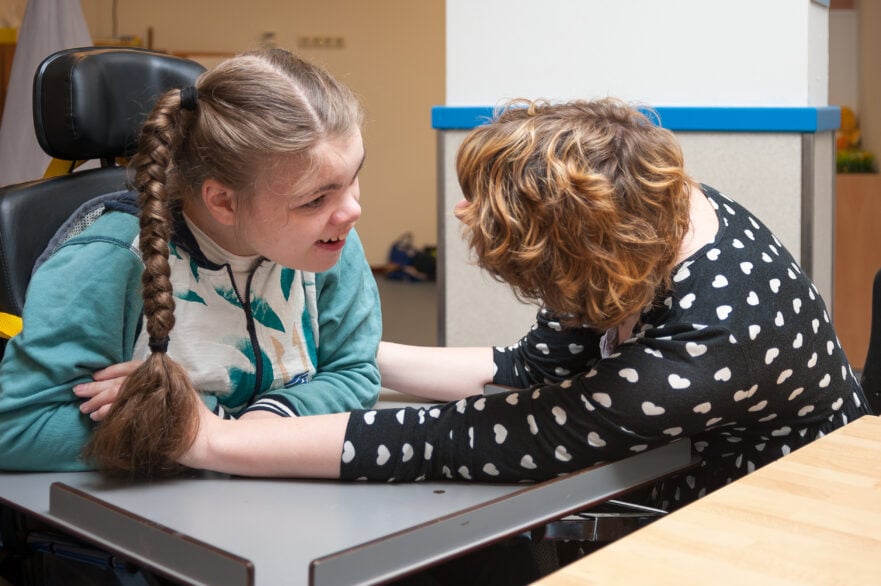Please consider participating in one of our research studies!
Please consider participating in one of our research studies! The Shriver Center has been a pioneer in research, education and service for individuals with IDD and their families. Together with the University of Massachusetts Medical School and other partners, our researchers investigate the causes, treatment and prevention of IDD with the goal of optimizing the functioning of individuals with disabilities and promoting healthy lifestyles. To that end, we are always looking for children and young adults—with or without disabilities—to take part in our research programs.
These studies are currently recruiting participants:

